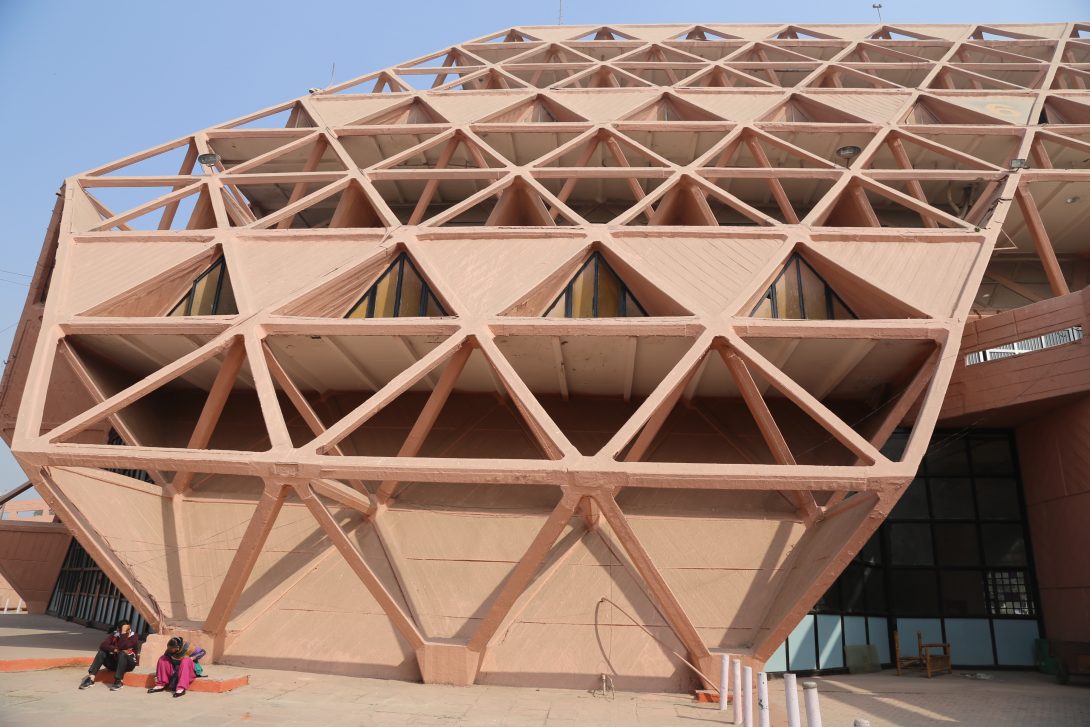Martino Stierli, “The Politics of Concrete: Material Culture and the Project of Decolonization in South Asia”
UIC Art History Colloquium
October 2, 2020
4:00 PM - 6:00 PM

The wide-spread use of concrete as primary building material within the global project of decolonization poses an interesting problem: On the one hand, concrete was widely associated with western, and in particular European, modernist architecture; and its use in the postcolonial condition of newly independent nation-states would thus seem to extend the reach of the colonial project. On the other hand, concrete was embraced by many of these states as a rebuke of colonial rule and as an emblem of a progressive and idealist politics of emancipation—this, despite the fact that concrete had often been used “unconsciously” for infrastructural projects even under colonial rule. Another binary to be discussed is that between the rhetoric of universal, industrialized building techniques based on prefabrication and the prevalence of local and craft cultures. I will discuss in depth the case of the recently demolished Hall of Nations in New Delhi (Raj Rewal and Mahendra Raj) and the complex conditions underlying the application of concrete within the political project of decolonization. Besides the symbolic connotations of concrete, my presentation will address issues of labor, geopolitics, infrastructure, and economics, all of which are key to developing a comprehensive understanding of the material’s meaning in this specific context. The material to be presented is based on original research in conjunction with a large exhibition on modern architecture in South Asia, scheduled to be on view at MoMA in early 2022.
Martino Stierli is The Philip Johnson Chief Curator of Architecture and Design at the Museum of Modern Art, New York, a role he assumed in March 2015. Stierli oversees the wide-ranging program of special exhibitions, installations, and acquisitions of the Department of Architecture and Design.
He is the author of "Montage and the Metropolis: Architecture, Modernity and the Representation of Space" (Yale University Press, 2018) and "Las Vegas in the Rearview Mirror: The City in Theory, Photography, and Film" (Getty Research Institute, 2013). He has organized and co-curated exhibitions on a variety of topics, including the international traveling exhibition Las Vegas Studio: Images from the Archives of Robert Venturi and Denise Scott Brown, and The Architecture of Hedonism: Three Villas in the Island of Capri, which was included in the 14th Architecture Biennale in Venice in 2014. At MoMA; he has curated the exhibition "Toward a Concrete Utopia: Architecture in Yugoslavia, 1948-1980,” and, with Ann Temkin, "From the Collection: 1960-1969". He has also overseen the new installation of the Architecture and Design collection galleries in the new expanded MoMA; which opened in October 2019. He is currently working on a large exhibition on the architecture of South Asia in the post-independence period.
Previous to joining MoMA, Martino was the Swiss National Science Foundation Professor at the University of Zurich's Institute of Art History. He has taught at Princeton and Columbia University, the universities of Zurich and Basel, and ETH Zurich, from where he holds a PhD. In 2012, he was a fellow at the Getty Research Institute, Los Angeles. His scholarship has been awarded numerous prizes and grants, including several publication grants from the Graham Foundation (2011 and 2016) as well as the Swiss Art Award 2011 by the Swiss Federal Office of Culture (for architectural criticism). Recently, Montage and the Metropolis was shortlisted for the 2018 MSA Book Prize by the Modernist Studies Association, and the exhibition catalog Toward a Concrete Utopia won the initial 2019 Richard Schlagman Art Book Award in the category History of Architecture.
For a Zoom link, please email arthistory@uic.edu.
Date posted
Sep 10, 2020
Date updated
Sep 10, 2020